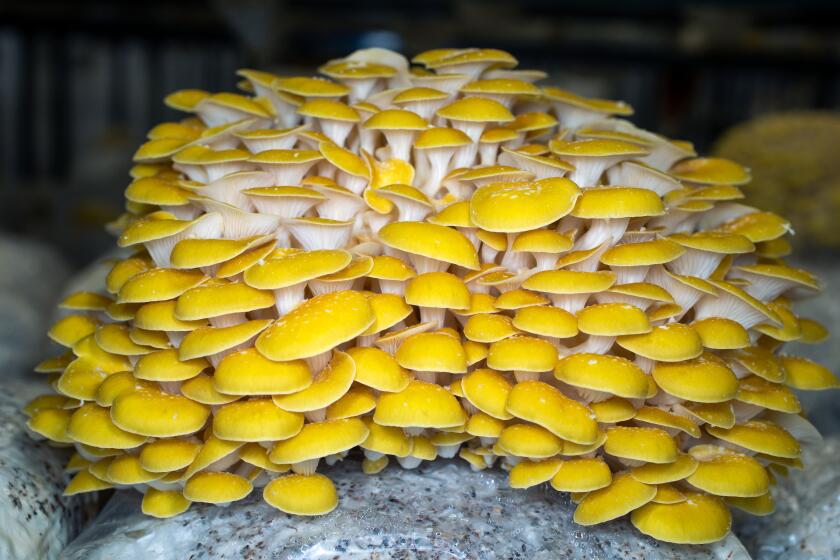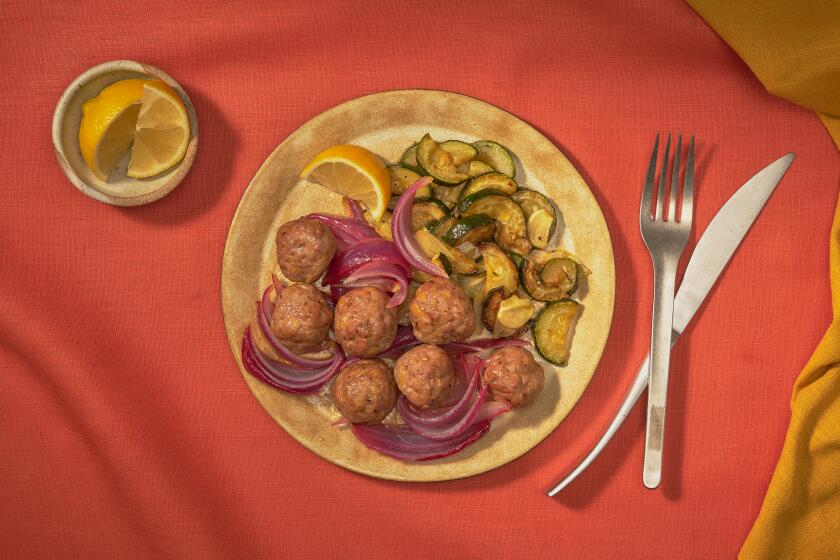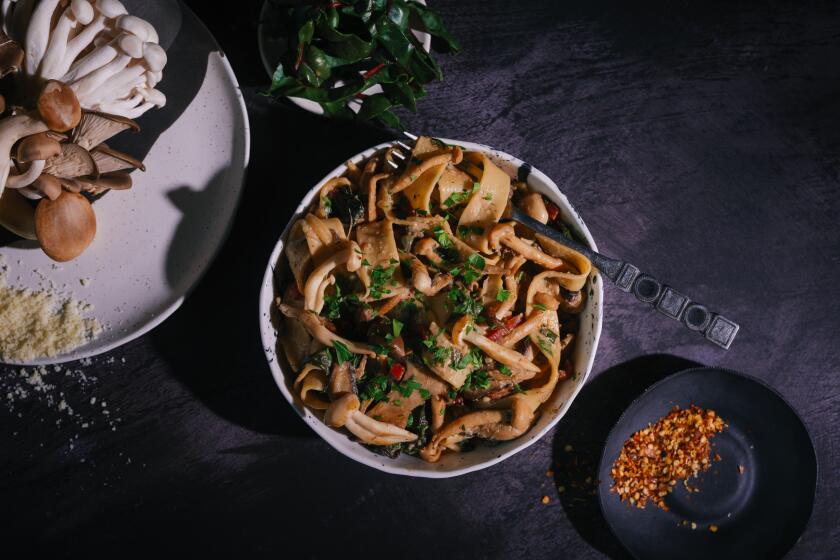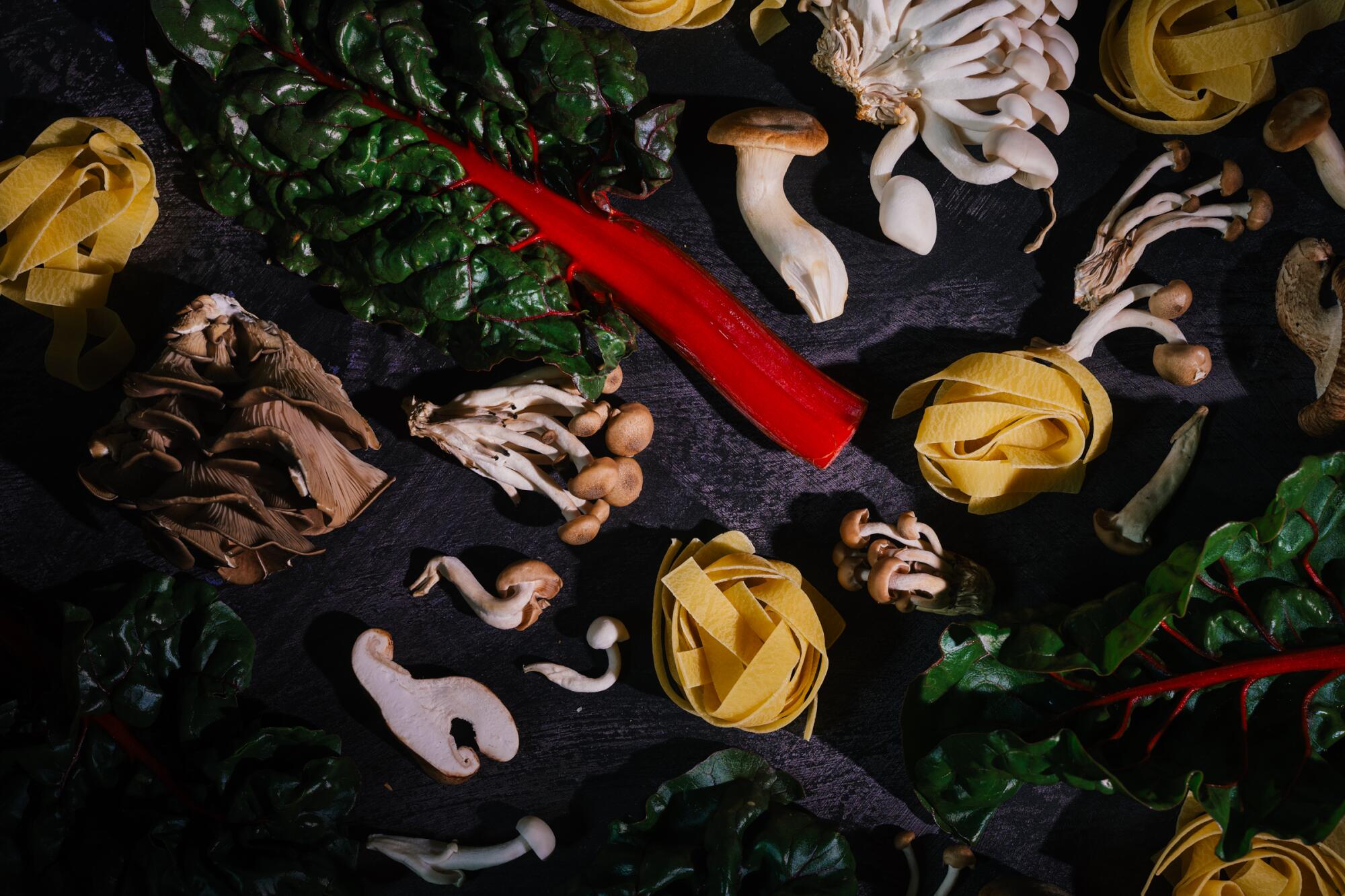
Sometime during the black hole of pandemic-driven lockdown, I saw the Netflix film “Fantastic Fungi” and, like many viewers, I was transfixed. I have always known that mushrooms are delicious. But who knew that much of the mystery behind mushrooms stems from the magic of mycelium? Or that there is a network of mycelium that underlies everything on the planet that functions as nature’s intelligence?
As ancient healers from many cultures have known, mushrooms are full of nutrients and medicinal properties, with many curative and preventative uses.
Also of note is that mushrooms contain a chemical called glutamate (also found in meat) that translates to umami.
So when I stumbled upon Far West Fungi’s mushroom mini farm grow kits, I had to give them a try. Inspired by the film — and the thought of abundant, fresh, “fancy” mushrooms growing on my dining room table — I ordered the variety pack, selecting shiitake, pink oyster, yellow oyster and lion’s mane.
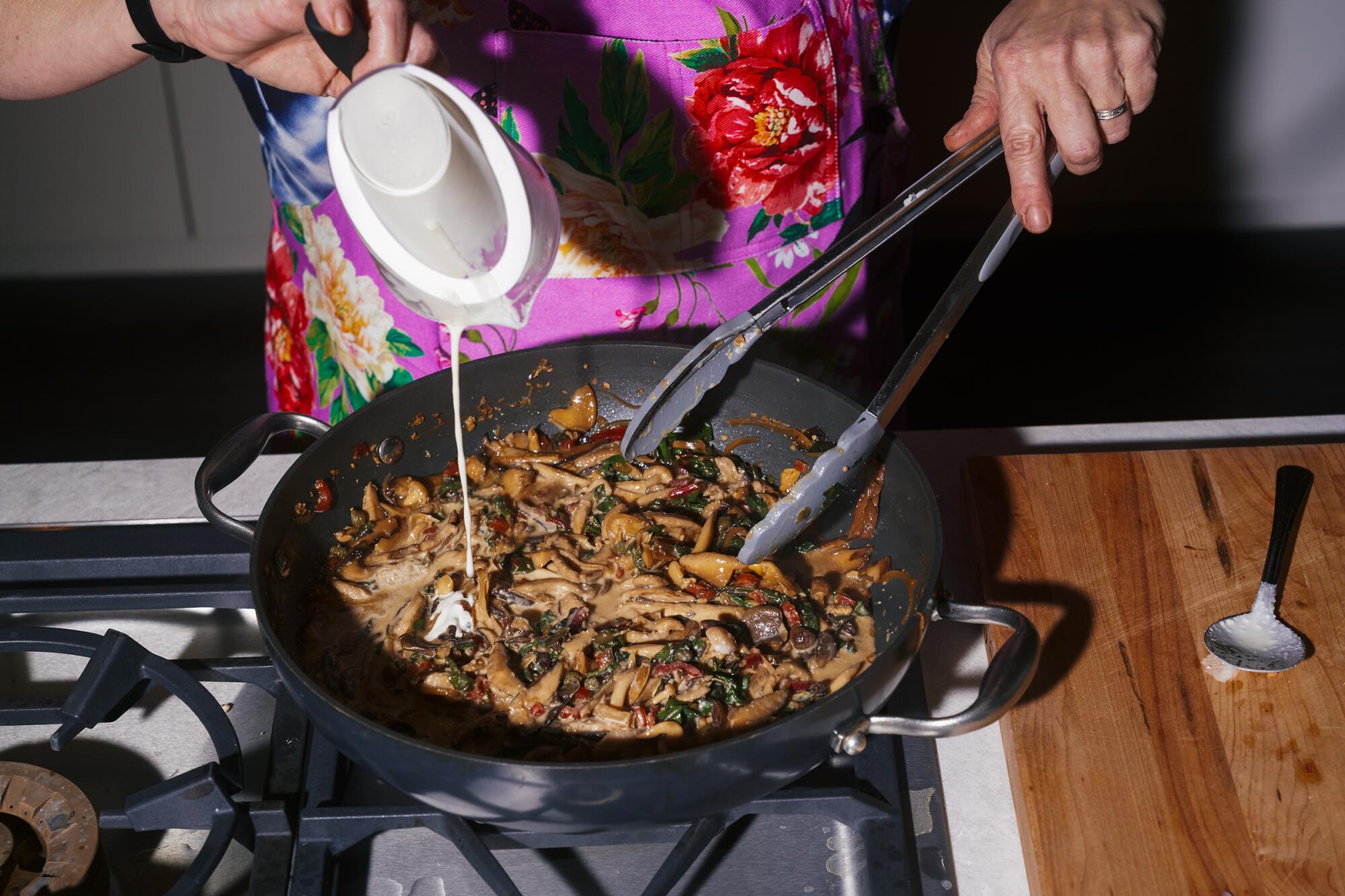
A few days later, I received a 20-pound box with instructions to keep the contents under temperature-controlled conditions. Clearly I had not read the fine print. I thought that the variety pack would contain “mini” versions of the grow kits. Now, instead of a small corner, this project was going to take up a good third of our dining room table, which was already doing double duty as a work-from-home space for my husband. (Oops!)
The epicenter of L.A.’s mushroom boom is a 34,000-square-foot warehouse in Vernon, where Smallhold ramps up to grow more than 20,000 pounds a week.
The mini farms were essentially corrugated boxes that contained what looked like a solid block of dirt wrapped in a plastic bag. The soil, called substrate, is made up of hardwood sawdust, rice bran, oyster shells, gypsum and soy hulls in different proportions depending on the mushroom variety.
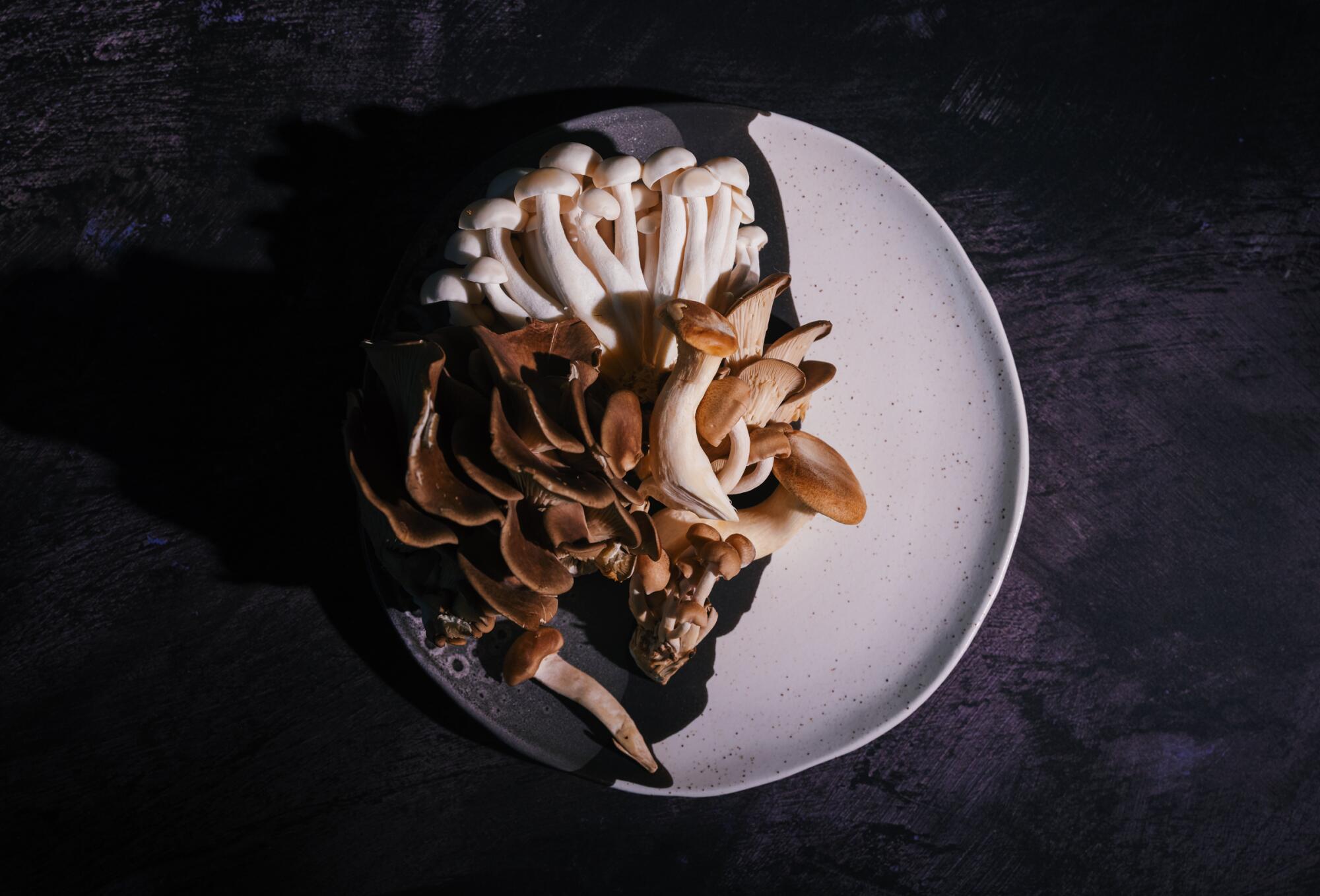
The instructions guided us to cut a hole into the perforated side of the box, slice a large X into the plastic that housed the substrate, and then to cover the entire box with a super-large (supplied) plastic bag, into which we were to cut more X’s to allow for aeration. We then sprayed the inside of the large plastic “wrapper” with water to create a moist environment.

A few days later we woke to find a lone, perfectly formed shiitake growing out of its substrate. It was a few more days before the oyster mushrooms and lion’s mane began sprouting, but once they did the outpouring seemed almost constant. The oyster mushrooms started out as teeny-weeny bits of pink and yellow that quickly formed into brilliantly colored layers of fan-shaped caps. The lion’s mane started out as white fuzz. As it grew, shaggy clumps formed that looked sort of like hairy cauliflower.
Lemon zest adds flavor and brightness to simple turkey meatballs roasted with red onions and served with tender zucchini sautéed with garlic and more lemon.
I was eager to harvest and taste, but the instructions said to wait until the fans were a good 2 inches in diameter before harvesting. I felt like a kid in Daniel Goleman’s marshmallow test — where you put a child in a room, hand them a marshmallow and explain that, if they can wait 10 minutes before eating it, they’ll get an additional marshmallow; then you leave them alone. It took extreme effort to not harvest some of those first mushrooms before their time.
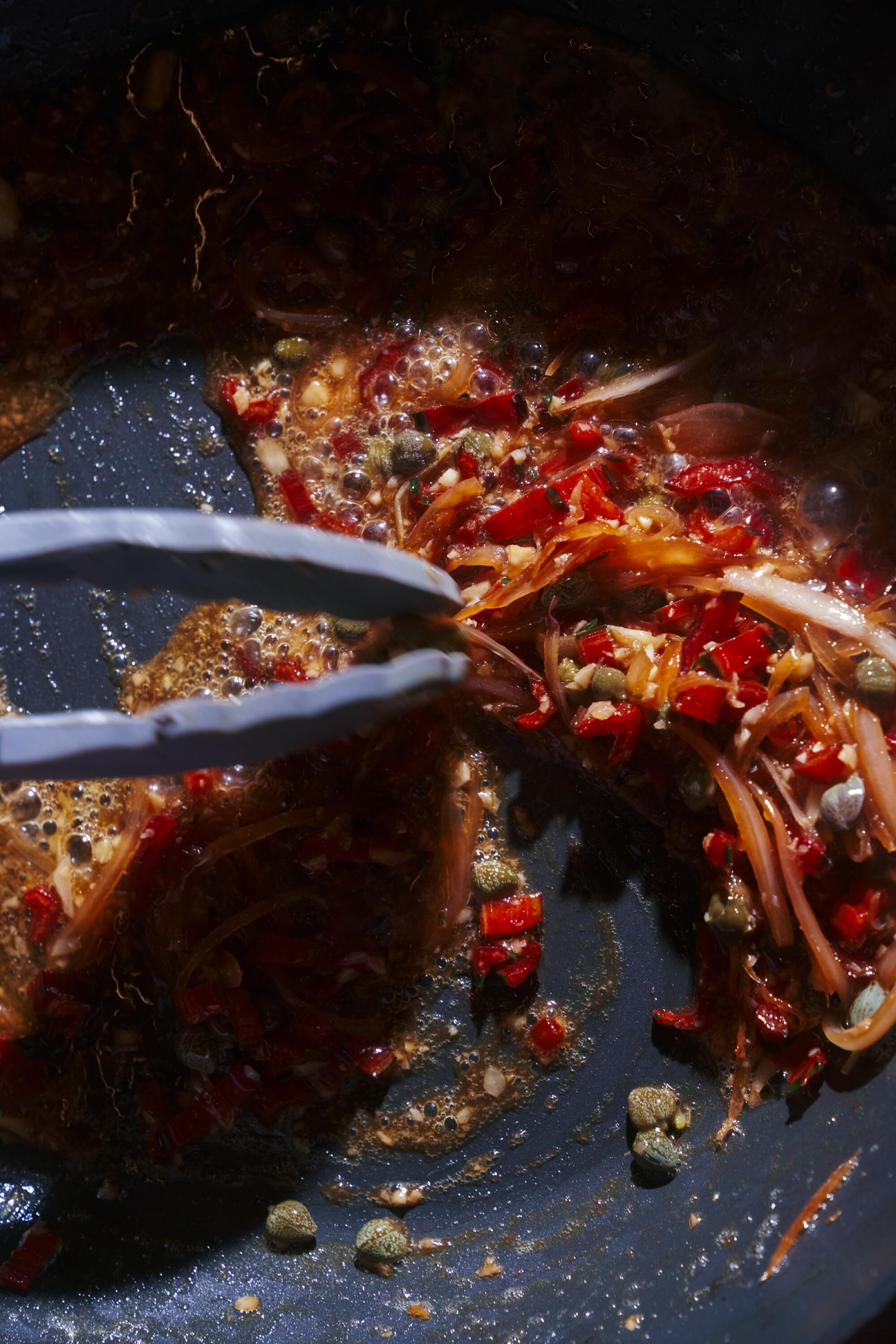
When I could wait no longer, I yanked out a few of the bright yellow oyster mushrooms and tossed them in a pan with a few spritzes of olive oil and sauteed them until they had released their juices and become nicely browned. They tasted earthy, almost seafoody — much more flavorful than the white button or cremini mushrooms that we typically eat with our scrambled eggs.
The lion’s mane mushrooms hinted of shrimp or lobster, both in flavor and texture. I added them to a clam sauce and they made it seem more like a seafood medley than clams and mushrooms. Served over a plate of pasta, it was divine.
After those first little harvests, the substrate seemed to spew ripe mushrooms, and I soon felt like I was in a mushroom marathon, making something different with the mushrooms almost every day. I tossed lion’s mane mushrooms into pasta aglio e olio (one of my go-tos that easily accommodates most any additional ingredient). The mottled surface of the mushrooms soaked up the sauce and added a different dimension of chew to the dish.
I dug up a recipe for a mushroom barley soup that was a mainstay on my table when I was in college. I made a mushroom miso soup with delicata squash and greens; mushroom risotto; polenta with mushroom ragù; chicken breasts stuffed with spinach and mushrooms; and one of my all-time favorites from the L.A. Times recipe archives, Evan Kleiman’s Lasagne ai Funghi.
Finally, a reprieve: a few consecutive days without mushrooms to harvest. And then there were more. And there was creamy mushroom soup, mushrooms in stir fries, mushrooms Parmesan, savory mushroom bread pudding, more mushroom soup and more mushrooms with pasta. One particular pasta dish, with assorted mushrooms, lots of garlic and cashew cream, became a meatless Monday favorite.
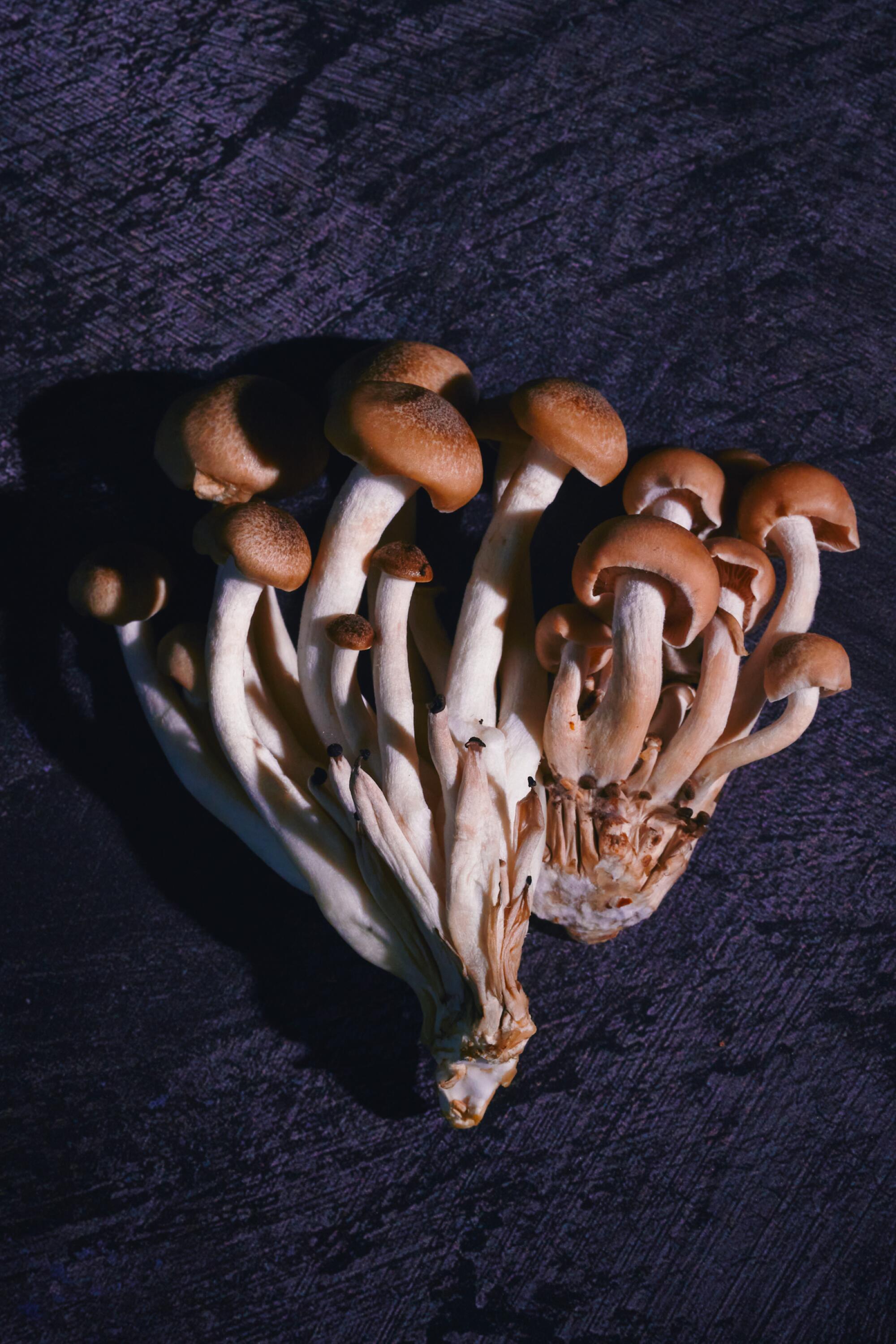
It was like magic (only these were decidedly not “magic” mushrooms). Just when I had used up a crop, there were more to be harvested. Even when we neglected to mist the farms, they continued to produce. And we didn’t even rotate the substrate block in the bag to grow from “the other side” (as Far West Fungi suggests). Nor did we submerge the substrate in water and dry it out again to encourage additional flushes once the mushrooms (finally) stopped growing.
Eventually, I tired of trying to keep up. I started par-cooking mushrooms and freezing them for future use (and yes, there are still some lingering in my freezer). One grow kit really would have been enough for the two of us. Four mini farms had me feeling like Kyle on “South Park,” who didn’t read the terms and conditions of his Apple contract and was doomed to an awful fate because of it. I was glad for the variety, though, especially given the quantity that resulted. We ate — and will eat — many delicious meals with copious amounts of mushrooms.
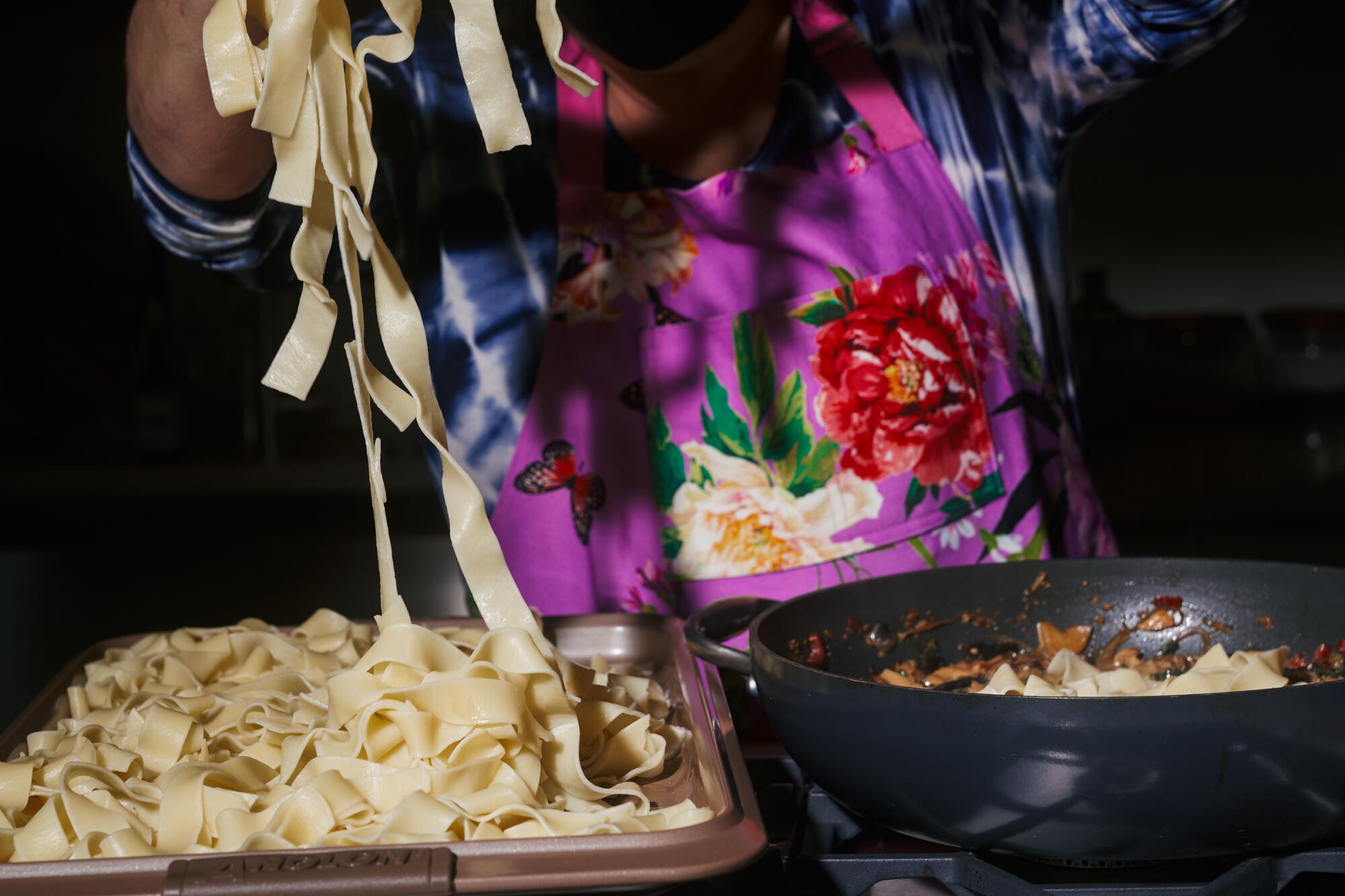
Pappardelle With Mushrooms and Cashew Cream
More to Read
Eat your way across L.A.
Get our weekly Tasting Notes newsletter for reviews, news and more.
You may occasionally receive promotional content from the Los Angeles Times.

